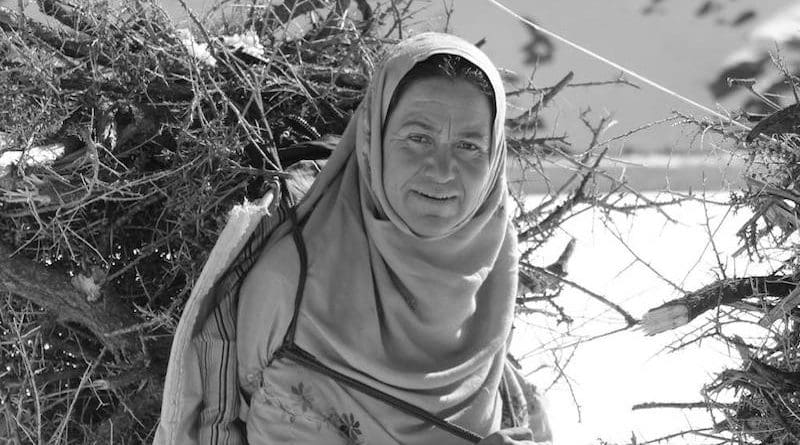Empowering The Backbone: Economic Opportunities For Rural Women In Balochistan – OpEd
By Amna Talha
Pakistan’s rural women, the unsung heroines of the agricultural sector, play a critical role in food security, contributing significantly to food production, livestock management, and household well-being. Despite their undeniable contributions, they face a multitude of challenges that hinder their economic empowerment.
This article explores the challenges they face in Balochistan, highlights the importance of their economic empowerment, and proposes solutions for a more inclusive future.
The Current Landscape: Unique Challenges in Balochistan
Balochistan presents unique challenges for rural women seeking economic empowerment. Conservative social norms often confine them to domestic duties, restricting their mobility and participation in the formal workforce to a much greater extent compared to other provinces Here’s a closer look at the key hurdles they experience:
- Limited Access to Resources: Land ownership and inheritance rights are heavily skewed towards men, restricting women’s control over a crucial economic asset. This lack of landownership makes it difficult for them to secure loans, invest in agricultural improvements, or leverage their land for better yields. Very limited access to gadgets like Mobile phones and smart phones making a percentage of 19% and 11% respectively.
- Educational Disparity: Female literacy rates in balochistan remain as low as 25% till year 2023, hindering their ability to acquire essential skills and knowledge. This educational gap limits their access to information on new farming techniques, market trends, and financial management, putting them at a significant disadvantage.
- Social Norms and Restrictions: Deep-rooted cultural norms often confine women to domestic duties, limiting their mobility and participation in the formal workforce. Societal expectations can restrict their ability to travel to markets, attend training sessions, or engage in entrepreneurial ventures.
The Power of Empowerment: A Catalyst for Change
Studies have consistently shown a strong correlation between women’s economic empowerment and Pakistan’s overall economic development. Increased female labor force participation can significantly boost the country’s GDP, raise household incomes, and improve overall economic well-being.
Here are some promising initiatives that are paving the way for change:
- Government of Balochistan Gender Equality and Women’s Empowerment Policy 2020-2024: This policy outlines a strategic framework to create an enabling environment. These centers can serve as a one-stop shop for women’s empowerment, providing essential services such as training workshops on financial literacy, business development, and marketing. They can also connect women with mentors, government programs, and financial resources through microfinance institutions. Additionally, the centers can facilitate the creation of women’s cooperatives, fostering collaboration and knowledge sharing amongst women entrepreneurs. This can empower them to collectively bargain for better prices for their products and services, improve their market access, and achieve greater economic security.
- Microfinance Programs: Programs like BISP (Benazir Income Support Program) are critical tools for economic empowerment. By providing women with access to small loans, these programs allow them to invest in micro-enterprises, such as livestock rearing, poultry farming, or setting up small shops. This financial independence grants them greater control over their lives and fosters self-reliance.
- Skills Development Training: Equipping women with vocational skills in areas like handicraft production, tailoring, or livestock management can significantly enhance their employability. Training programs that are culturally sensitive and cater to the specific needs of rural women can open doors to new income-generating opportunities, both within the agricultural sector and beyond.
- Digital Literacy Initiatives: In today’s digital age, bridging the digital divide is essential. Programs that provide training in e-commerce and online marketing can open up new avenues for rural women entrepreneurs. By equipping them with the skills to sell their products online, they can reach wider markets and increase their earning potential.
Building a Brighter Future: A Call to Collaborative Action
Empowering rural women in Pakistan requires a multi-pronged approach that addresses the social, economic, and educational barriers they face. Here’s what stakeholders can do to contribute:
- Government Policy and Legislation: Government policies that promote gender equality in land ownership, inheritance rights, and access to education are crucial. Legislation that tackles discriminatory practices and fosters a more inclusive environment for women in the workforce is essential.
- Social Change and Community Engagement: Challenging societal norms and attitudes that restrict women’s mobility and participation in economic activities is vital. Community engagement programs that promote gender equality and raise awareness about the benefits of women’s economic empowerment can lead to positive social change. Programs like showcasing of Handicrafts made by Balochi Women in different exhibitions can bring together people from all provinces and can add to social harmony among all. It can also be help in boosting confidence in Balochi Women by portraying their skills.
- Investing in Education and Training: Investing in education for girls in Balochistan’s rural areas is a long-term solution. Increased access to quality education not only empowers women but also equips them with the knowledge and skills they need to succeed in the workplace. Sustained investments in education and training programs that address the specific needs and cultural context of Balochistan’s rural women are vital for their empowerment and the province’s overall economic development.
By creating an enabling environment that unlocks the potential of Balochistan’s rural women, the province can harness a vast pool of talent and entrepreneurial spirit. This will not only lead to a more prosperous economy but also create a more just and equitable society for all.
Empowering Balochistan’s rural women is not just a moral imperative but a strategic investment in the province’s future. By unlocking their potential, Balochistan can create a more inclusive and prosperous society for all. Through a multi-pronged approach that combines government policies, social change initiatives, targeted skills development, and investments in education and digital literacy, Balochistan can bridge the gap and empower its rural women to become architects of their own destinies and key drivers of the province’s economic growth. As Balochistan’s women rise, so too will the entire province.

